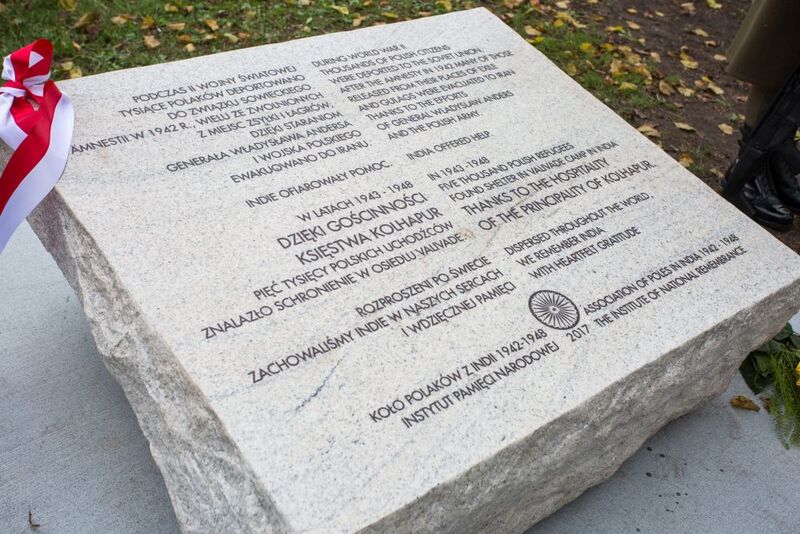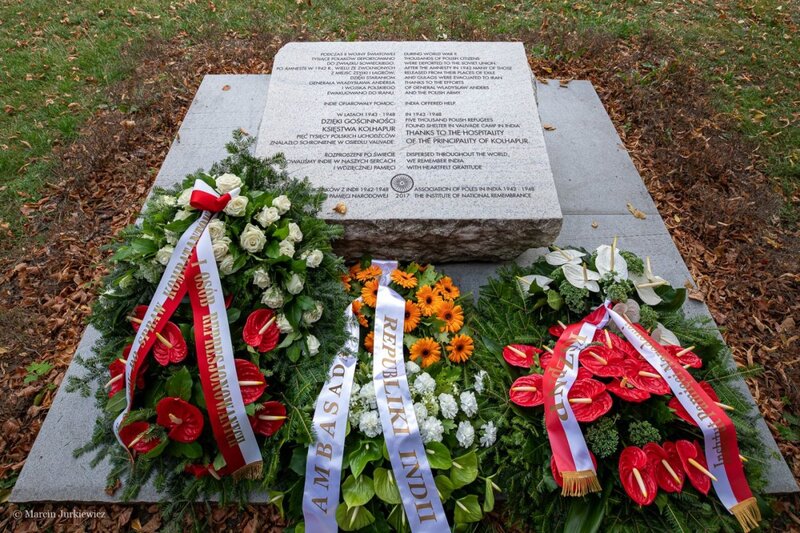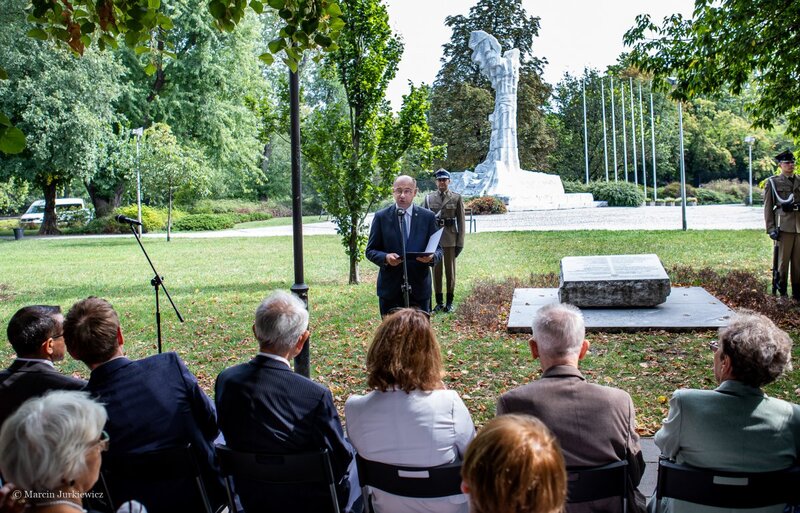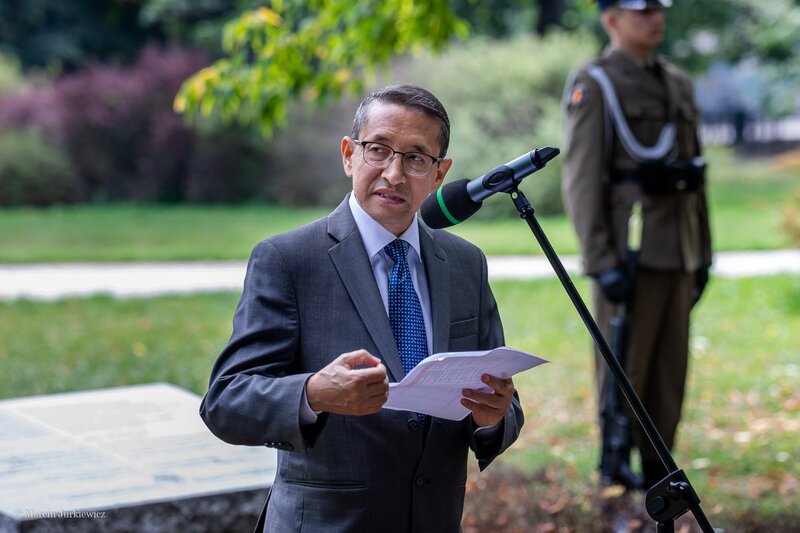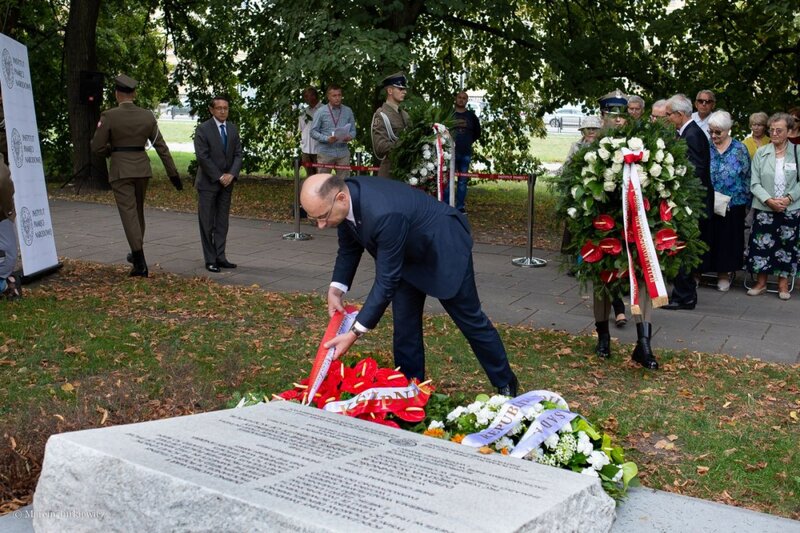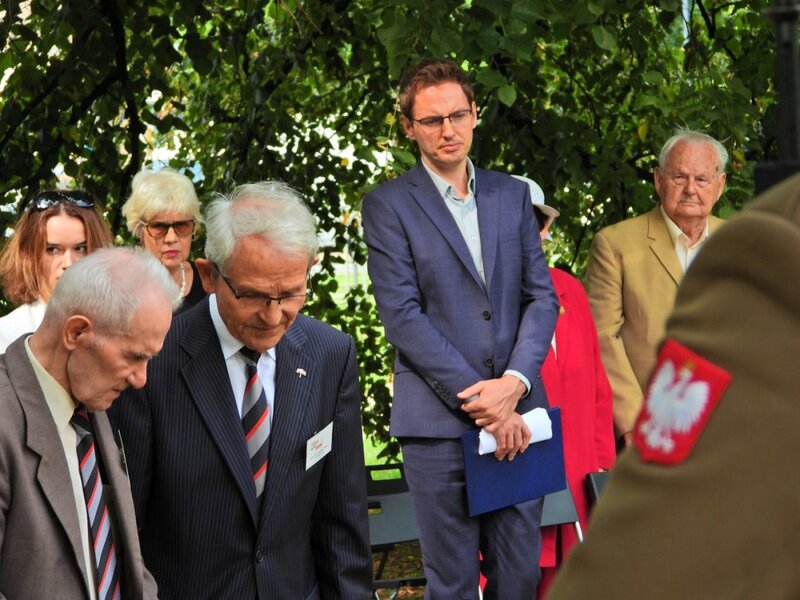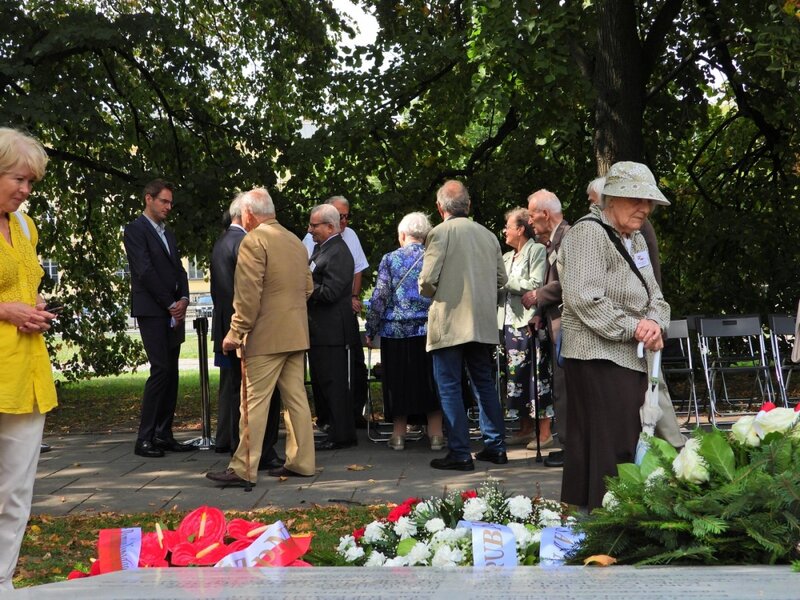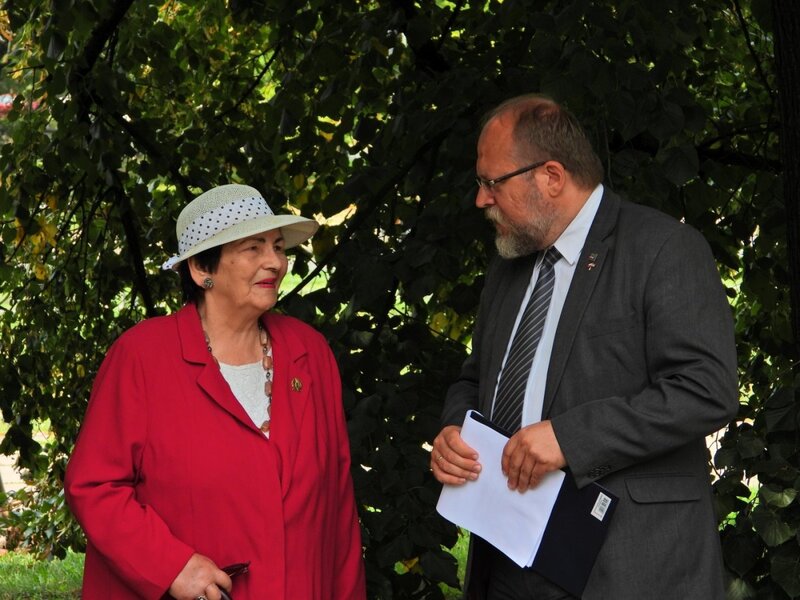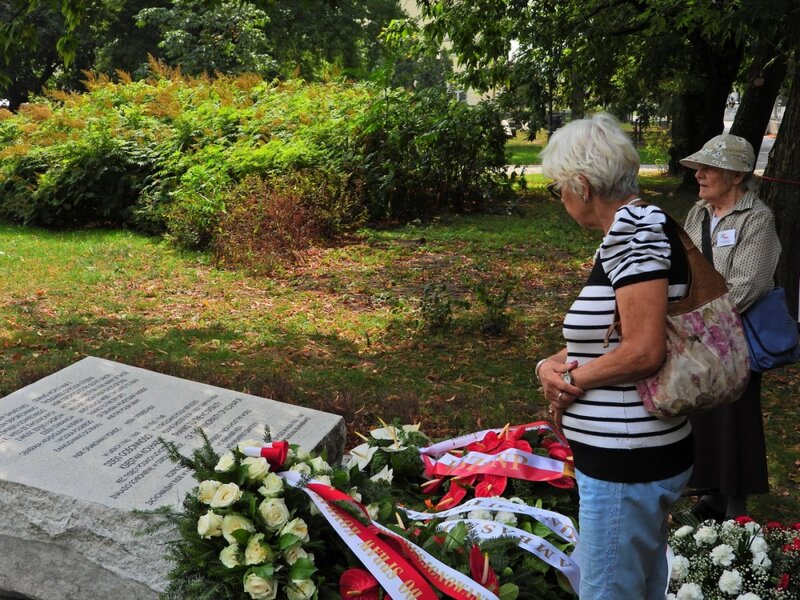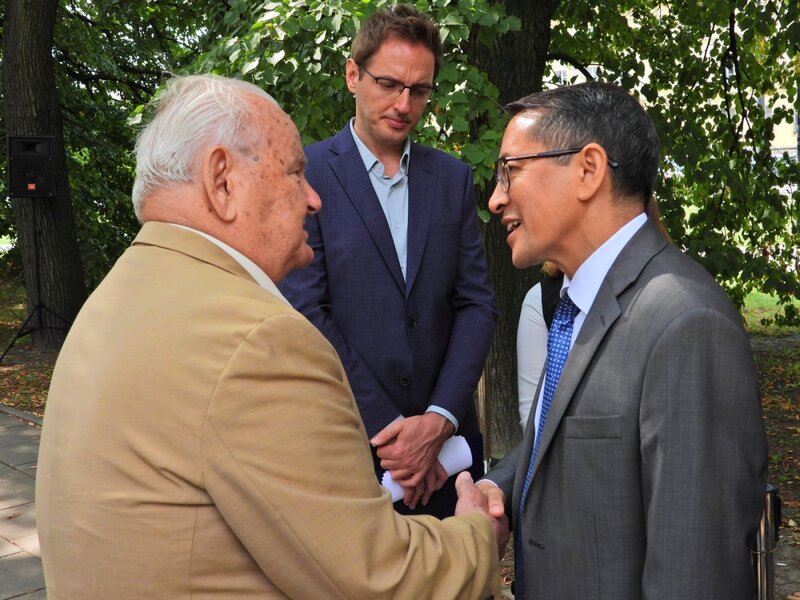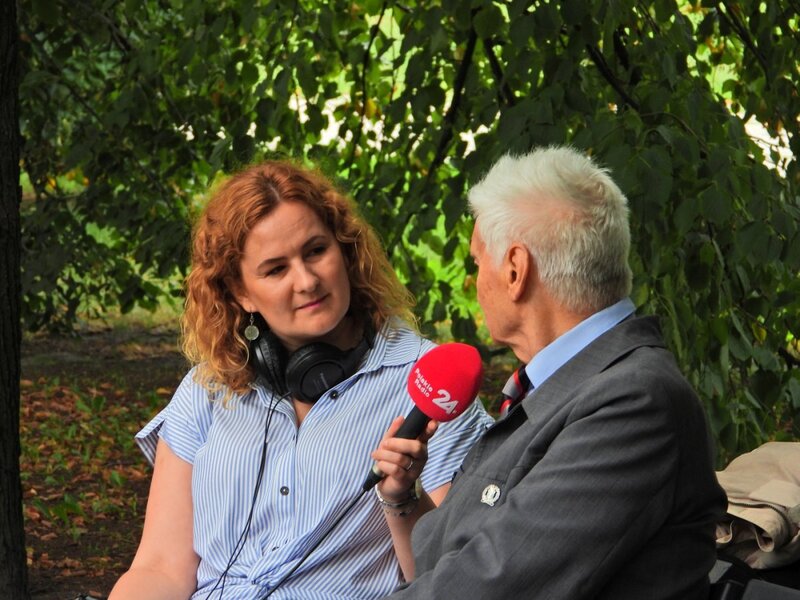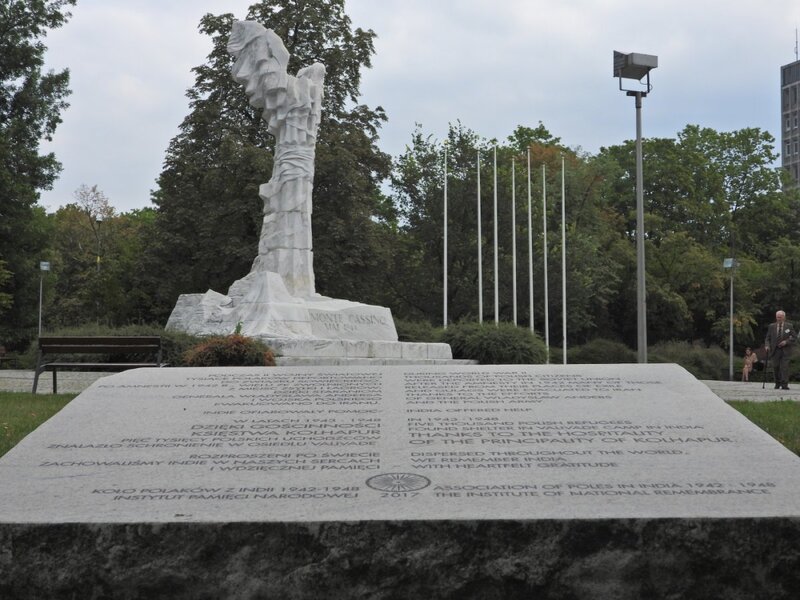The commemorative events started on 13 August at 11 am, in Square of Wandering Soldiers (Warsaw), at the commemorative plaque devoted to Polish refugees who had found shelter in India during WW II. The plaque, funded by the Institute of National Remembrance and unveiled in 2017, is a symbol of profound gratitude to the people and authorities of the Principality of Kolhapur for providing shelter to the Polish civilians.
The plaque (in Polish and English) includes the following inscription: "During World War II thousands of Polish citizens were deported to the Soviet Union. After the amnesty in 1942 many of those released from their place of exile and gulags were evacuated to Iran thanks to the efforts of General Władyslaw Anders and the Polish army. India offered help. In 1942-1948 five thousand Polish refugees found shelter in Valivade in India thanks to the hospitality of the Principality of Kolhapur. Dispersed throughout the world we remember India with heartfelt gratitude. 2017. Association of Poles in India 1942-1948. Institute of National Remembrance.”
Among the participants to the celebration were: Ambassador Extraordinary and Plenipotentiary of the Republic of India to Poland, Tsewang Namgyal, and President of Little Poland in India in the years 1942-48, Andrzej Chendyński.
Deputy President of the IPN, Dr Mateusz Szpytma and Director of the IPN's Office for Commemorating the Struggle and Martyrdom, Adam Siwek represented the Institute of National Remembrance at the commemoration.
The events coincide with the 72th anniversary of the Indian Independence Act. India became independent after two centuries of British rule. The Independence Day is annually celebrated on 15 August, as a national holiday in India.
